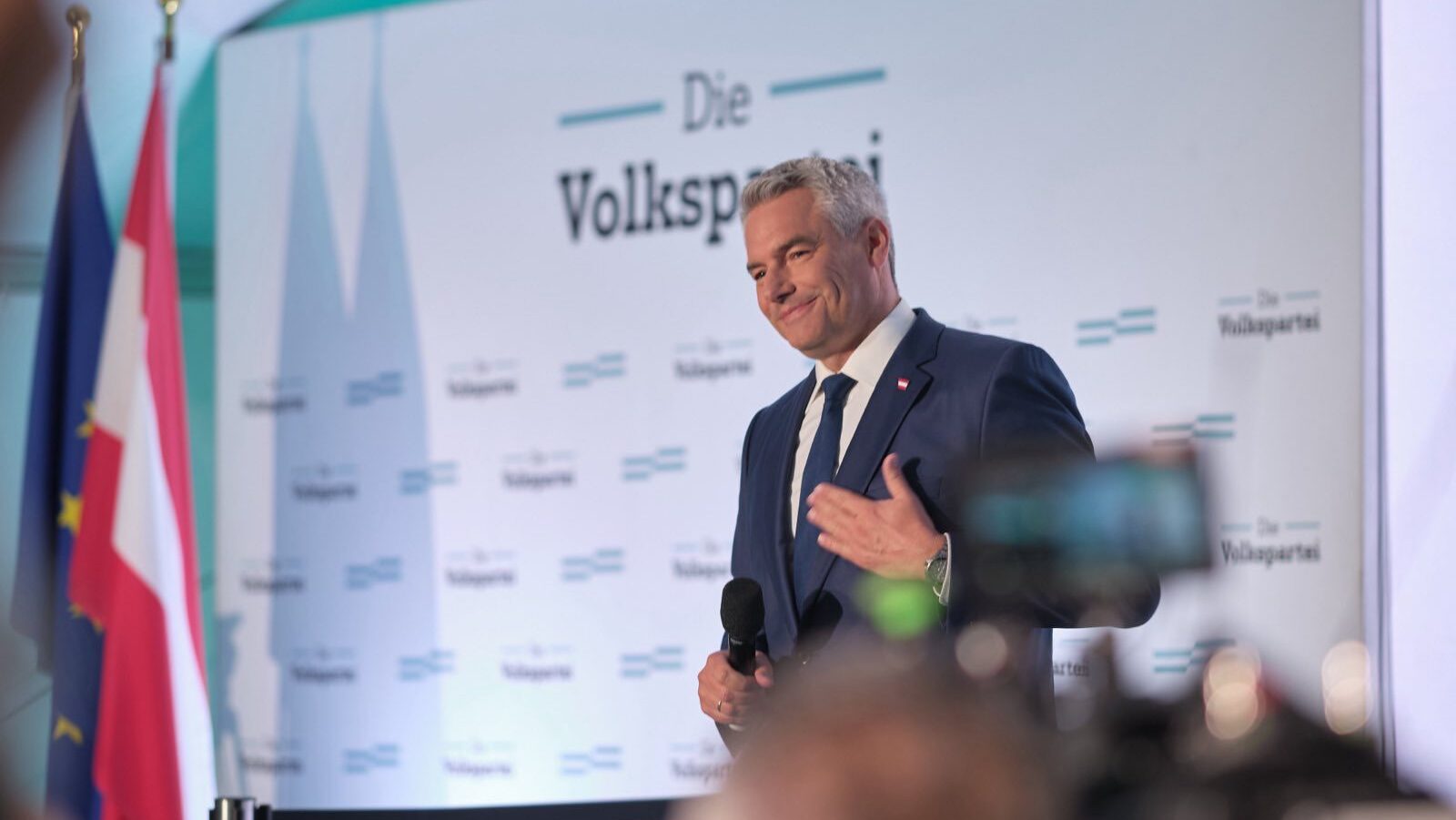
The right-wing anti-immigration Freedom Party (FPÖ) remained the winner of the Austrian national elections after the mail-in-votes were counted on Monday, September 30th. According to the latest results, the party received 28.8% of the votes and 57 seats in the 183-seat parliament.
The governing centre-right People’s Party (ÖVP) got 26.3% and 51 seats, while the opposition Social Democrats (SPÖ) are in third place with 21.1% and 41 seats.
If there are no further significant changes—the remaining votes will be counted on Thursday—the two mainstream parties, the ÖVP and the SPÖ, will have only a razor-thin majority in the parliament if they decide to reform their ‘grand coalition,’ a format that dominated Austrian politics for many decades following World War II.
The two establishment forces, as well as the Greens (16 seats) and the liberal NEOS party (18 seats) have ruled out entering into a government with the Freedom Party—thus ignoring the will of the electorate which clearly signalled it wants a shift to the Right on policies such as migration and security. The Freedom Party won its first ever national election with its best result to date, while the ÖVP lost ten percentage points, and the SPÖ achieved its worst ever result, demonstrating that voters are dissatisfied with the current status quo, and want tougher rules on asylum, and a new government to deal with the cost-of-living crisis.
Yet, it seems that the establishment wants to maintain the cordon sanitaire imposed against the FPÖ, effectively shutting out the party’s right to form a government.
All the parties will internally evaluate the election results and discuss how to move forward in the next couple of days. Whatever they decide in terms of forming a coalition, talks will probably last for months before a new government is announced. Following the elections in 2019, it took more than three months for Sebastian Kurz to form his government, even though it was only a two-party coalition between the ÖVP and the Greens.
According to Austrian media reports, it is more likely that a three-party coalition will be necessary this time around—a first for Austria—to ensure that a comfortable majority is formed in parliament.
Political analyst Peter Filzmaier believes that ÖVP has the upper hand in negotiations, and it can talk to anyone it likes, even to the FPÖ if it chooses, because there are no possible coalition variations that do not include the ÖVP. However, Filzmaier warns, the People’s Party would have a much easier time agreeing with the Freedom Party, as their programmes are very similar to each other, especially in the areas of economy and security, whereas forming a government with the left-wing Social Democrats will be tough, and will give the FPÖ another “five years of continuous election campaigning.”
Nevertheless, Chancellor Karl Nehammer (ÖVP) said on Tuesday, October 1st, that the Freedom Party should be given the first chance by the country’s president Alexander Van der Bellen to form a government, as they won the elections.
This would be the normal practice but Van der Bellen, a former leader of the left-wing Greens, voiced reservations about the FPÖ last year due to the party’s pro-peace stance with regards to the war in Ukraine. The president has hinted that he might not allow the FPÖ’s leader Herbert Kickl to become chancellor, saying in a speech on Sunday that “the pillars of our liberal democracy” should be respected.
Why he believes that “the pillars” of “liberal democracy” would not be respected with FPÖ at the helm remains a mystery, but the attitude of Van der Bellen is typical of the liberal elites who despise Eurosceptic and sovereigntist parties.
